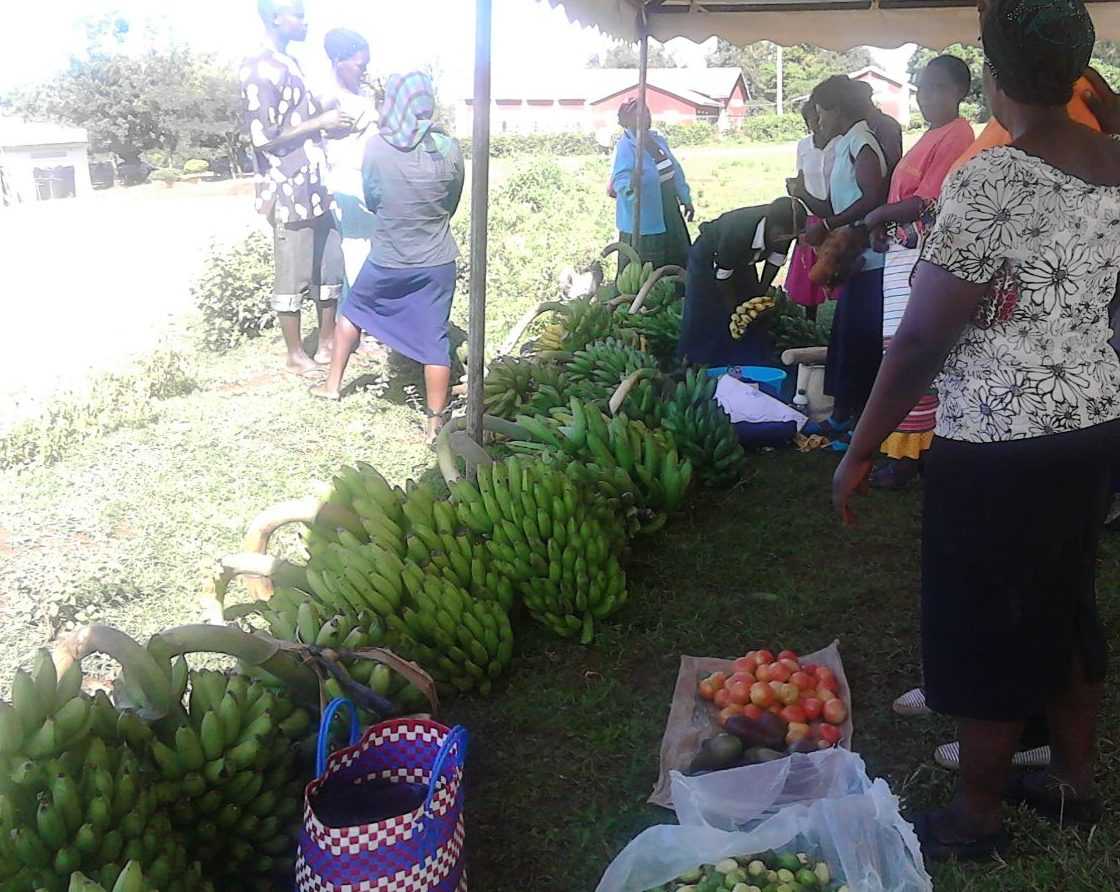Share your coffee stories with us by writing to info@comunicaffe.com.
MANAFWA, Uganda – The Manafwa Earth Market, to be launched on Wednesday April 12, takes place at Manafwa District Head Quarters in Manafwa in Eastern Uganda on Wednesday, every two weeks, from 9:00am to 4:00pm.
The market is run directly by 21 farmers from the local food communities, in particular the Buwasiba and Bukusu Yetana Terra Madre food communities.
Manafwa is a farming area in the eastern Mountains-Mbale region, near the border to Kenya.
Typically, it produces cabbages, onions, leafy vegetables, and mountain products. The district was known in the past as one of the most important food biodiversity hubs in Uganda.
However, this richness is today seriously under threat because of the externally imposed introduction of new commercial breeds of livestock (chicken) and plant hybrids (coffee and banana), and the spread of monoculture systems (maize).
The diverse organic products sold by the farmers at the Earth Market come from community and family gardens.
They include beans, matooke banana for cooking, bogoya banana as fresh fruit, green leafy vegetables, avocado, tomatoes, onions, potatoes and cassava, local seeds of beans and maize, local hens and eggs. Ndiizi (apple banana), malewa (bamboo shoots) and Nyasaland coffee are also available and promoted as products safeguarded by the Ark of Taste, Slow Food’s catalog of the world’s food biodiversity.
Preserving traditional and local products and bringing together small-scale food producers and consumers are the objectives of the Manafwa Earth Market.
The Slow Food Youth Network Uganda group is also creating a demonstration garden just near the market place to show to producers and consumers what a Slow Food garden looks like and to train more people about farming practices.
Producers see the Earth Market as a concrete way to improve their livelihood not just by selling directly to consumers at a higher price, but also investing more time and efforts in their job.
Kakayi Sylivia, matooke banana producer, says: “So many people have been telling us about poverty eradication but no one had given us this opportunity to sell our products directly to consumers.
It has always been the middlemen buying my products at a very cheap price just because I did not have an option but now I can sell them at a better price and the customers get them at a cheaper price.
Thanks to Slow Food I can even now manage to take my kid back to school and now I am farming with a lot of hope.”
Slow Food Earth markets are important meeting points, where local producers offer healthy, quality food directly to consumers at fair prices and guarantee environmentally sustainable methods. In addition, they preserve the food culture of the local community and contribute to defending biodiversity.
Today, there are 60 earth markets in 17 countries (Austria, Bulgaria, Chile, Colombia, India, Israel, Italy, Latvia, Lebanon, Mauritius, Mexico, Mozambique, Puerto Rico, Spain, Turkey, Uganda and United States).
Uganda has 5 Slow Food Presidia, 41 Terra Madre food communities, 232 Slow Food gardens, two Earth Market in Mukono-Wakiso and now in Manafwa and about 30 products listed on the Ark of Taste. Uganda has also joined the Slow Food Chefs’ Alliance, which includes 10 chefs committed to promoting local producers and keeping Ugandan food traditions alive.
The Manafwa Earth Market was created by Slow Food Uganda in cooperation with representatives of producers and supported by Intesa Sanpaolo’s “Fund for Charitable Social and Cultural Donations”















